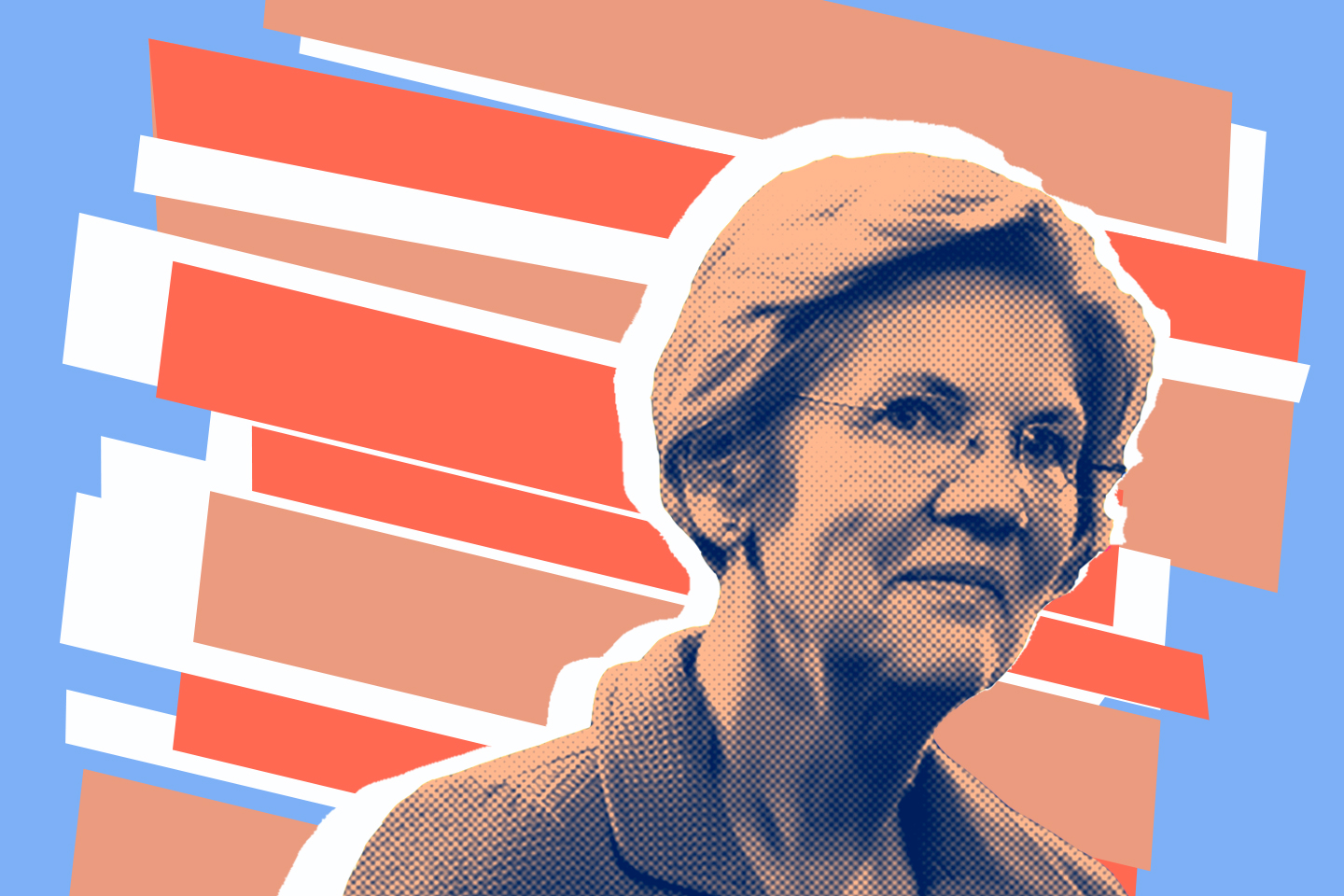Senator Elizabeth Warren (D-Mass.) emerged early on as a front-runner in the crowded Democratic primary race. Let’s dive into her positions on all things Jewish:
First up: What has Warren said and done to address anti-Semitism?
“Let’s be clear, anti-Semitism has no place in democracy,” Warren said in a June 2019 address to the American Jewish Committee Global Forum. She called anti-Semitic graffiti in her state “cowardly acts of hate” and condemned the defacement of Jewish gravestones in Fall River, Massachsusets as a “hateful act.”
After the anti-Semitic Pittsburgh synagogue shooting in October 2018, Warren attended Shabbat services at Temple Emanuel in Newton as a part of the #ShowUpForShabbat campaign organized by AJC. There, she led the congregation in reciting the prayer for the welfare of the United States.
Warren has acknowledged the real dangers of anti-Semitism in America, calling the Pittsburgh attack an “act of pure evil [that] was an attack on the Jewish community not just in Pittsburgh, but all across our country. Anti-Semitism is at the root of so many vile and hateful acts. The danger anti-Semitism poses is real and tangible.”

Her official campaign account, @ewarren, has tweeted multiple times about anti-Semitism: in the wake of the Jersey City Shooting, regarding Trump’s comments in December 2019, twice in the wake of Pittsburgh, once after the Chabad of Poway shooting, once after the Halle shooting, once on Yom HaShoah (Israel’s Holocaust Remembrance Day), on US Holocaust Memorial Day, and more. Her Senate Twitter account, @SenWarren, has also tweeted numerous times about anti-Semitism.
What does Warren say about BDS, the movement to boycott, divest from, and sanction Israel?
“I don’t support the boycott, I think the boycott is wrong, but I think outlawing protected free speech activity violates our basic constitution,” she said in response to the controversial Israel Anti-Boycott Act, which she voted against in February 2019.
Her director for progressive partnerships, Max Berger, helped found the anti-occupation group IfNotNow and tweeted in 2017 that he “agree[s] with BDS.”
What American Jewish groups does Warren work with?
As a senator, Warren accepted the endorsement of J Street, an American pro-Israel, anti-occupation lobbying group.
During the government shutdown in late 2018 and early 2019, Warren pledged her salary to the Hebrew Immigrant Aid Society, a Jewish non-profit that supports refugees (salaries of Congress members were not frozen during the shutdown).
Over 7,000 people in Massachusetts have been sent home or are working without pay during the #TrumpShutdown. Until @realDonaldTrump re-opens the government, I'm donating my salary to @HIASrefugees, a nonprofit that helps refugees and makes our country stronger in the process.
— Elizabeth Warren (@SenWarren) January 1, 2019
Alright, let’s pivot to her foreign policy. What is Warren’s general position on Israel?
She’s supportive, yet critical of some of its policies. “Israel lives in a dangerous part of the world where there are not a lot of liberal democracies,” Warren said shortly after declaring her presidential bid. “We need a strong Israel there.”
“America has a very special relationship with Israel,” Warren said in an August 2014 town hall. “Israel lives in a very dangerous part of the world, and a part of the world where there aren’t many liberal democracies and democracies that are controlled by the rule of law. And we very much need an ally in that part of the world.”
However, in a video Q&A with the New York Times in June 2019, Warren said “the current situation” in Israel is “not tenable.” At a town hall in July, she said, “Yes, yes … so, I’m there,” when an IfNotNow member asked her if she would “push the Israeli government to end the occupation.”
What’s her history on Israel?
In 2014, she voted in favor of $225 million in funding for Iron Dome, Israel’s missile-interception system. She also defended Israel’s actions during the 2014 Gaza War, explaining, “When Hamas puts its rocket launchers next to hospitals, next to schools, they’re using their civilian population to protect their military assets. And I believe Israel has a right, at that point, to defend itself.”
In 2015, she voted for the Iran nuclear deal that Netanyahu opposed.
In April 2018, during the protests of Israeli occupation at the Gaza border, Warren urged Israeli restraint. “I am deeply concerned about the deaths and injuries in Gaza,” Warren said. “As additional protests are planned for the coming days, the Israel Defense Forces should exercise restraint and respect the rights of Palestinians to peacefully protest.”
Where does Warren generally stand on solving the Israeli-Palestinian conflict?
Warren supports a two-state solution.
A spokesperson for the campaign, Alexis Krieg, told JTA that “Senator Warren believes a two-state solution is the outcome that is best for U.S. interests, for Israel’s security and its future, and for ensuring Palestinian rights, freedom and self-determination. As president, she will seek ways to preserve the viability of the two-state solution on the ground.”
What does “preserve the viability of the two-state solution” really mean?
Let’s turn to another quote: In October 2019, Warren said in a speech that “it is the official policy of the United States of America to support a two-state solution, and if Israel is moving in the opposite direction, then everything is on the table.” When pressed if she meant leveraging aid to Israel, Warren didn’t specify, and repeated “everything is on the table.”
Would Warren leverage U.S. aid to Israel to achieve a two-state solution?
As Warren explained in a video at the 2019 J Street conference, “We must find ways to make tangible progress on the ground toward a two-state solution. Sometimes that might mean finding ways to apply pressure and create consequences for problematic behavior as previous Democratic and Republican presidents have done.”
“For example,” she continued, “if Israel’s government continues with steps to formally annex the West Bank, the United States should make it clear that none of our aid should be used to support annexation.”
Warren, like most Democratic candidates, is against further settlement construction in the West Bank.
How does Warren get along with Netanyahu?
“Let’s be clear: We can speak out against the far-right-wing policies of the Netanyahu government like annexation and settlements while supporting Israel,” Warren said in her 2019 JStreet video. She has also stated that the U.S. should “call out Netanyahu’s corruption.” In April 2019, when Netanyahu pledged to annex parts of the West Bank if re-elected, Warren was one of the first Democratic candidates to speak out against this.
In November 2017, Warren was one of 10 senators (including Sen. Sanders and Sen. Dianne Feinstein) to sign a letter to Netanyahu, urging him to not demolish the Palestinian villages of Sussia and Khan al-Ahmar. (Israel said both were unauthorized.) This is in line with Warren’s continued emphasis on ensuring the “viability” of a two-state solution.
Tl;dr: Warren on the Israeli-Palestinian conflict?
She supports a two-state solution; she does not like Netanyahu; she has voted for aid for Israel; she is against continued settlements and annexation of the West Bank; and if Israel is moving away from a two-state solution, “everything is on the table.”

Jewish fun fact?
Warren is buddies with Barbra Streisand — they go way back. In 2011, the Jewish superstar told Politico: “In the last several years, there has been one new, consistent and strong voice that has broken through the oftentimes murky and ineffectual cacophony about the economic problems facing our nation. That voice has been the voice of Elizabeth Warren. She has advocated passionately, brilliantly and forcefully in defense of a strong middle class.”
Image of Elizabeth Warren by Zach Gibson/Getty Images; design by Grace Yagel




